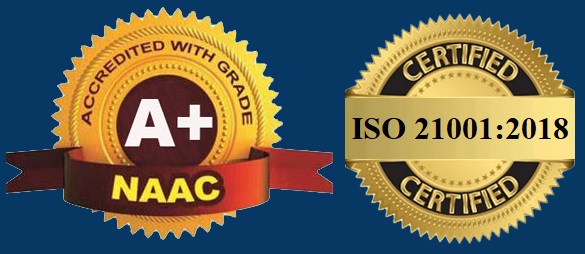The Department offers programmes recognized as important determinations for the psychological, social and economic development of women. These programmes also help to improve access to jobs in public as well private sectors and provide ample opportunities to research in these areas. The Department of Women’s Studies is offering the following Post Graduate Programmes.
| Programmes | |||
| Programme Name | Duration | Regular Seats | Payment Seats |
|---|---|---|---|
| M.A. Women Studies (old) M.A. in Gender Studies (Since 2021-22) |
2 Years (4 Semesters) |
25 | - |
|
Programme Objectives :
The branch of Gender Studies enables the students to participate in the development process as powerful instruments of change. University education brings it closer to the burning social issues, to work for their solutions and produce sensitive women who will be able to play more committed and meaningful roles in developmental activities for women in all sectors. Programme Outcomes :After completing Programme the students will get placements as Gender Consultants in MNCs (Multi National Companies) International Organizations, DRDA (District Rural Development Agency), ICDS (Integrated Child Development Services), RMK (Rashtriya Mahila Kosh), CAPART(Council for Advancement of People’s Action and Rural Technology), ILP(Individual Learning Plan), DPIP(District Poverty Initiatives Programme), Department of Women and Child Development, Government of A.P. and Government of India, NGOs, Tribal Welfare Departments, Juvenile Homes, State Homes, Family Counseling Centers, Observation Homes for Girls and Women and many other avenues of employment including self employment as women entrepreneurs. Eligibility :
Core Programmes : Introduction to Women and Gender Studies, Women’s Movements, Research Methodology and Statistics, Gender Inclusive Policies and Programmes and Interventions, Documentation Report, Feminist Theories, Gender and Health, Computer Applications and Software Packages, Laws for Gender Equality, Field Report, Gender, Media and Governance, Gender Environment and Livelihood, Internship, Gender and Development, Entrepreneurship and Skill Development, Gender Perspectives on Human Rights. Elective Programmes :Computer Applications, NGO Management, Human Rights and Women, Extension and Outreach Programmes, Women and Entrepreneurship, Gender and Development, Gender and Governance, Rural Development, Women and Reproductive Health, Leadership and Capacity Building, Post Modern Feminism, Organization and Management of Self Help Groups, , Counselling- Theory and Practice, Participatory Learning Action. |
|||
| Programme Name | Duration | Regular Seats | Payment Seats |
|---|---|---|---|
| M.A. Economics | 2 Years (4 Semesters) |
25 | - |
|
Programme Objectives :
The Programme will facilitate the students to use economic models in domestic and global contexts to analyze individual decision making in product and factor markets. They can analyze the performance and functioning of government, markets and institutions in the context of social and economic problems. Programme Outcomes :After completing Programme the students will to take up career as Assistant Professors in Colleges and Universities, Indian Economic Services, Research Offices, in organizations dealing with economics related topics and organizations like Bureau of Economics and Statistic Coaching Institutions. Prepare students for Group-I and Group-II, Export and Import Promotional Councils. In News Papers to deal with Economics columns, in Banks, Insurance Companies and Shares and Stock Market, Trade Association; Market Research Companies etc. as Market Analysts, Business Managers, Financial Policy Makers, Insurance Analysts, Supply Chain Analyst, Budget Analysts Policy Analysts, Business Forecasters, Credit Analysts, Investment Analysts, Statisticians and Demographers. Eligibility :
Core Programmes : Micro Economics-I, Macro Economics-I, Public Finance , Mathematical Economics, Research Methodology and Statistical tools, Micro Economics- II, Macro Economics-II, Computer Application and Software Package, Economic Development and Planning, Indian Economy, International Economics, Environmental Economics, Internship, Gender and Economics, Entrepreneurship and Skill Development, Dissertation/Moocs.
Agricultural Economics, Industrial Economics, Basic Econometrics , Urban Economics, Human Resource Development, Economics of Service Sector , Financial Markets and Institutions, Welfare Economics, Rural Economics, Labour Economics, Advanced Econometrics, Regional Economics, Gender and Development, Economics of Information Technology, Economics of Insurance. External Electives :
|
|||
| Research Programmes | |
The Department is actively involved in the Research Programmes on various thrust areas. The following Research Programmes are offered by the Department on Full-time and Part-time basis by following the UGC guidelines. M.Phil and PhD in Economics also introduced in the year 2019-20. | |
| Research Programmes | Areas of Research |
|---|---|
| M.Phil and Ph.D. |
|


